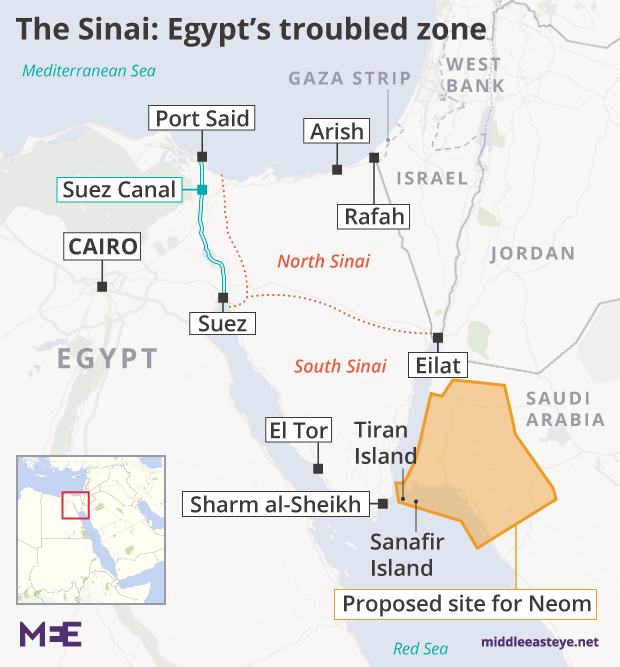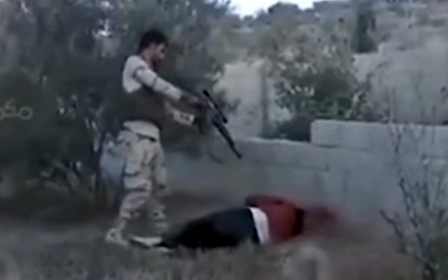Egypt intensifies Sinai home demolitions in bid to fight IS, says rights group

A rights group has accused the Egyptian army of unlawfully destroying thousands of homes and hundreds of hectares of farmland in parts of northern Sinai, as part of its campaign against militants affiliated to the Islamic State (IS) group.
Using satellite imagery and local testimony, Human Rights Watch said that at least 3,000 homes and commercial buildings were destroyed in northern Sinai, leading many lifelong residents to be displaced in the area.
The destruction, much of which is "likely unlawful" according to the group, has extended beyond the two government-designated security buffer zones in the cities of al-Arish and Rafah.
HRW had also accused the Egyptian army of demolishing several homes in al-Arish, "in retaliation against terrorism suspects, political dissidents, and their relatives".
Since 2013, more than 1,500 armed attacks have killed dozens of civilians and hundreds of members of the security forces in northern Sinai, according to the Tahrir Institute for Middle East Policy.
The most active militant group in the area is Sinai Province, the local IS affiliate which pledged allegiance to the group in 2014 and staged a series of attacks against the army in 2015.
Last November, more than 300 people were killed in an attack by militants on worshippers at a mosque in Al-Rawda in the northern Sinai. No group claimed responsibility for the attack.
Residents who have fallen victim to the recent round of demolitions told HRW that the army began demolishing houses and razing farms around the al-Arish airport, soon after President Fatah Abdel al-Sisi announced a five-kilometre airport buffer zone in January 2018.
"My younger brother called me," a man living outside Egypt whose family home is in the city told HRW.
"He said that security forces came and forced by mother, grandmother, and younger brother out of the house. Then they set the whole building on fire."
Sarah Leah Whitson, Middle East Director at Human Rights Watch, described the Egyptian army's actions as "absurd" and helping "exacerbate" the precarious humanitarian situation in northern Sinai."Turning people's homes into rubble is part of the same self-defeating security plan that has restricted food and movement to inflict pain on Sinai residents," said Whitson.
"The Egyptian army claims it is protecting people from militants, but its absurd to think that destroying homes and displacing lifelong residents would make them safer."
The army did not respond to requests for comment by the right's group.
Counterterrorism campaign criticisms
HRW's latest report comes after a video posted online, showed Egyptian soldiers allegedly executing a young man in the Sinai peninsula, earlier this month.
The video sparked widespread criticism from activists who say the army is fighting in the area "under complete secrecy".
The military maintains that the footage was fabricated.
The counterterrorism campaign in North Sinai has been rife with accusations of abuses.
Between July 2013 and August 2015, Egyptian authorities destroyed around half of the town of Rafah, on the border with the Gaza Strip, evicting thousands of families, and demolishing at least 3,255 buildings, according to Human Rights Watch.
Dozens of families Human Rights Watch interviewed in 2016 and 2017 reported numerous arbitrary arrests, enforced disappearances, torture, and extrajudicial killings by the Egyptian military and interior ministry forces.
New MEE newsletter: Jerusalem Dispatch
Sign up to get the latest insights and analysis on Israel-Palestine, alongside Turkey Unpacked and other MEE newsletters
Middle East Eye delivers independent and unrivalled coverage and analysis of the Middle East, North Africa and beyond. To learn more about republishing this content and the associated fees, please fill out this form. More about MEE can be found here.





